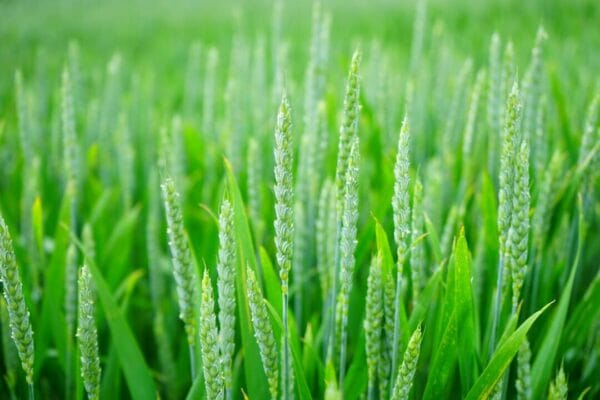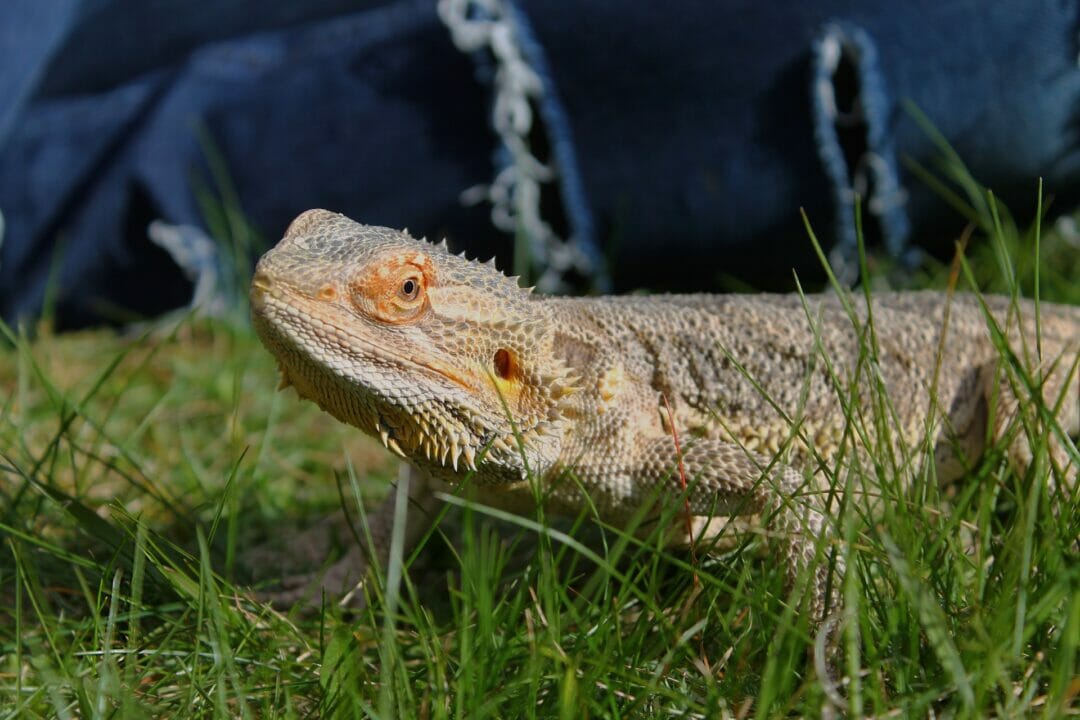Bearded dragons are native to the arid deserts of Australia and have specific dietary needs to thrive.
One question that many bearded dragon owners have is whether or not their pet can eat grass.
In this article, we will explore the topic of grass consumption in bearded dragons and discuss the potential benefits and risks associated with this diet. So, can bearded dragons eat grass?
Can Bearded Dragons Eat Grass?
The answer is yes; Bearded dragons can tolerate eating small amounts of grass without any problems.
However, it’s important to note that bearded dragons should not eat grass as their main diet, as it does not provide enough protein and other essential nutrients for their growth and health.
It’s also important to note that when feeding bearded dragons grass, it’s important to ensure that the grass is fresh and clean.
If the grass is moldy or has been sitting around for a long time, it may not be safe for your bearded dragon to eat.
Grass Side Effects in Bearded Dragons
While grass is generally safe for bearded dragons to eat, you should be aware of some potential side effects. These side effects include:
- Diarrhea – Too much grass can sometimes cause diarrhea in bearded dragons. If your bearded dragon has diarrhea, it is important to reduce the amount of grass they are eating and ensure they are drinking plenty of water.
- Vomiting – Vomiting can also be a side effect of eating too much grass. So if your bearded dragon vomits, it is important to reduce the amount of grass.
- Dehydration –Dehydration is a risk for all reptiles, but it is especially important to watch for signs of dehydration in bearded dragons who have diarrhea or are vomiting. Some signs of dehydration include lethargy, sunken eyes, and a loss of appetite. If you think your bearded dragon may be dehydrated, it is important to take them to the vet as soon as possible.
- Obesity – Bearded dragons who overeat grass can sometimes become obese. Obesity can lead to many health problems, including diabetes, heart disease, and arthritis.
- Impaction – Overeating grass can sometimes cause impaction when a bearded dragon’s digestive system becomes blocked. Signs of impaction include constipation, lethargy, and a loss of appetite.
Can Baby Bearded Dragons Eat Grass?
Baby bearded dragons can technically eat grass, but it is not recommended.
Young bearded dragons should be fed a diet high in protein, such as insects and small amounts of fruits and vegetables.
As they grow older, they can be fed a more varied diet that includes more fruits and vegetables, including grass.
Can Bearded Dragons Eat Wheatgrass?

Yes, bearded dragons can eat wheatgrass. In fact, wheatgrass is an excellent addition to their diet due to its high nutritional value.
It can provide essential vitamins, minerals, and fiber that are beneficial to their health.
However, it’s important to note that wheatgrass should only be given to your bearded dragon in moderation.
As with any new food, it’s best to introduce wheatgrass gradually into their diet to avoid digestive upset. Additionally, ensure the wheatgrass is fresh and free from any pesticides or chemicals that could harm your pet.
The Nutritional Benefits of Wheatgrass for Bearded Dragons
As mentioned earlier, wheatgrass is a nutrient-dense food high in vitamins and minerals. Let’s look at some specific nutritional benefits of wheatgrass for bearded dragons.
Firstly, wheatgrass contains various antioxidants and antibacterial and anti-inflammatory compounds that can help protect your bearded dragon from disease and support their overall health. These compounds include flavonoids, phenolic acids, and alkaloids.
Additionally, wheatgrass is a good source of iron and calcium, essential minerals for bearded dragons. Iron helps to transport oxygen throughout the body, while calcium is important for strong bones and teeth.
Including wheatgrass in your bearded dragon’s diet can help ensure they receive adequate amounts of these essential minerals.
Wheatgrass also contains digestive enzymes, which aid digestion and nutrient absorption. It is particularly beneficial for bearded dragons, as they require a diet high in fiber to support their digestive health.
Lastly, wheatgrass is rich in vitamins A, C, E, K, and B, which are all important for overall health and well-being.
Vitamin A, for example, is important for maintaining healthy vision and immune function, while vitamin C is an antioxidant that can help protect cells from damage.
Adding wheatgrass to your bearded dragon’s diet can provide various nutritional benefits that can help promote their overall health and well-being.
However, it’s important to remember that wheatgrass should be fed in moderation and as part of a balanced diet.
Related Articles:
Can Bearded Dragons Eat Seaweed?
Can Bearded Dragons Eat Collard Greens?
Can Bearded Dragons Eat Microgreens?

